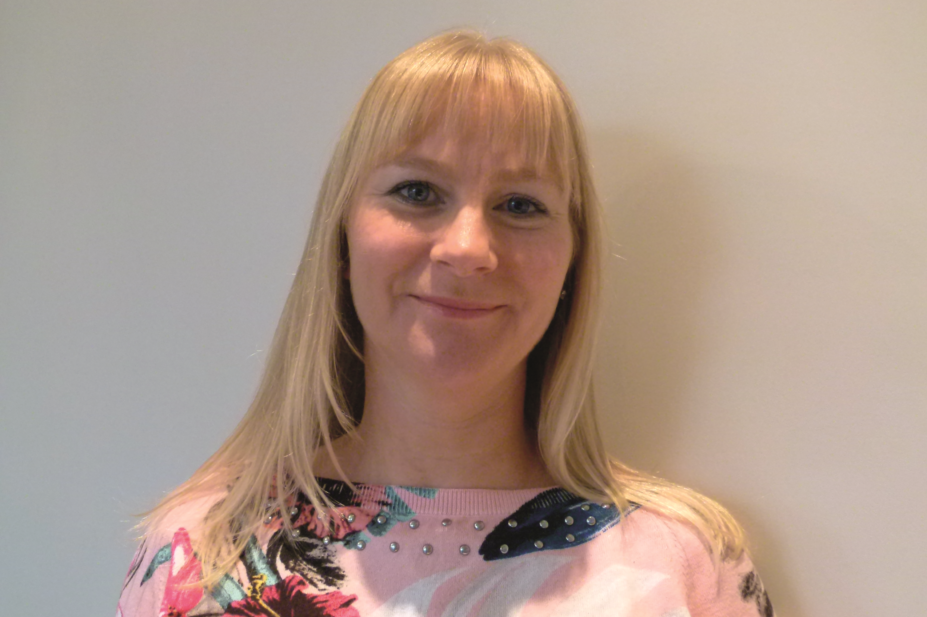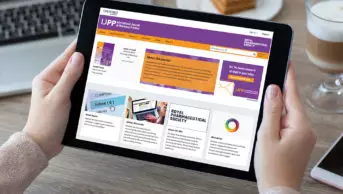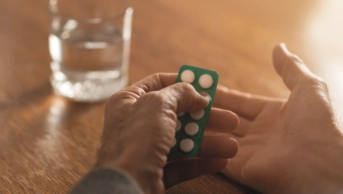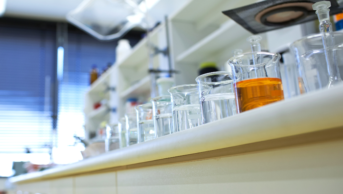
Courtesy of Rachel Macdonald
Rachel Macdonald, professional services pharmacist for PCT Healthcare Ltd, recently participated in the Salford Lung Study in community pharmacy.
What is the ‘Salford Lung Study’ and what was it trying to achieve?
The Salford Lung Study (SLS) is actually two studies looking at the effectiveness of a novel dry powder inhaler compared with usual care in either patients with asthma or chronic obstructive pulmonary disease (COPD) in everyday clinical practice. However, as well as examining the effectiveness of a new medicine, which was pre-licence at the time the study was initiated, it looked at how real patients take their medicines.
Once patients had been randomised to the control or treatment arm, they had their medicine prescribed by their GP and collected it, including the ‘investigational medicinal product’ (IMP), from their normal community pharmacy.
Why did you decide to get involved in the Salford Lung Study?
In 2011, I became professional services pharmacist for PCT Healthcare Ltd, a large independent pharmacy chain trading as Tims & Parker or Peak Pharmacy in Greater Manchester, Derbyshire and the Midlands. On starting my new role, the superintendent pharmacist told me about the SLS. I was keen to find out more information and get involved as it sounded like a unique opportunity — it is not every day that a world-first clinical trial is available in your area.
Although my role is based in the superintendent’s department, where I am responsible for facilitating the delivery of advanced and local enhanced services for over 120 pharmacies, I also keep my skills up to date by working in the pharmacy. This dual role meant I could support the study, so I became a member of the SLS pharmacy steering group.
Did you have any reservations about taking part?
Initially, I was apprehensive about understanding the breadth of the clinical trial regulations because I had no previous experience of participating in research. It is a huge responsibility to ensure that all the regulations are strictly followed so that the results are as robust as possible. When I spoke to other pharmacists, it became apparent we were all in the same position.
GSK, which funded the study, ran training programmes and reassured us that we did not need to know everything. There was also a large team to support us through the process.
How did you prepare for taking part in the study?
Every pharmacist and member of the pharmacy team attended a face-to-face training session at Salford Quays which covered the study specific training and Good Clinical Practice (GCP) training. After the training I read through the pharmacy manual, which is a comprehensive document about the protocol and procedures of the study. Finally I had to complete a CV compliant with NHS research and development ethics, which demonstrated that I am qualified by education, training and experience to conduct the research. A copy of the CV and GCP certificate was then held at each pharmacy where I work, because they are all separate sites for the study.
What activities were you committed to do during the study?
When the study started there was a lot of publicity, with pharmacies displaying posters and banners, so it was important that the team and I could answer enquiries from our customers about the study, including advising them if they were eligible to take part. I regularly visited the 12 Tims & Parker branches in Salford, Greater Manchester, to support them with rolling out the study, and linked in with their Clinical Research Associates (CRAs) to ensure that any issues identified on their contract monitoring visits were ironed out quickly.
Once patients were part of the study it was imperative that these patients received the same care as before. Because this trial was in a real-life setting, it was important not to introduce bias to the results, so patients in both the study and control arms had to be treated in an identical way.
Additional activities necessary for the trial, such as monitoring the temperature of the pharmacy and completing extra paperwork for recording and dispensing, had to become part of the daily routine. I also delivered in-house training for the delivery drivers so they had an outline of the study and could direct any questions to the pharmacist. I was amazed at how quickly participating in the SLS became embedded into the daily work flow.
Throughout the study I continued to attend the monthly steering group meetings, taking back any feedback from the pharmacists who were the principle investigator (PI) at each site and the pharmacy teams.
What were the best aspects of taking part?
Links within primary care have become stronger as a consequence of us all working together for the common benefit of not only research, but of our patients. My relationship with local GPs in Salford has also improved.
Our patients have benefited from participating in the study because they have received access to a new medicine more quickly than they would via the traditional double blind randomised controlled trial route. The design of the study also meant it was possible for patients with comorbidities to take part.
Participating in the trial has created an energy within community pharmacy — we have demonstrated we have the skills and opportunity to deliver clinical research to a wide range of people seamlessly. Even though the study was focused on respiratory conditions, it has created patient engagement around clinical trials that can be delivered in pharmacy. Patients frequently commented: “I wish there were a clinical trial for my condition that would allow me access to new medicine — I’d definitely sign up.”
Participating in this study has been rewarding both personally and professionally. I have now secured the role as the community pharmacy champion for the Greater Manchester clinical research network, part of the National Institute of Health and Research, because of my passion for opening the gateway to research to the public through community pharmacy.
What were the most difficult or challenging aspects?
Initially the quantity of paperwork and getting to grips with all the acronyms used in research was a challenge. It takes time to get to grips with the study file and research processes when delving into an unknown field.
Additionally, at the start of the study in 2011 we did not have any technical solutions for sending the patient data to North West e-health, so at the end of each day we would have to fax a copy of every single prescription dispensed for all patients participating in the study, regardless of whether it was for a respiratory medicine. I am pleased to say that we no longer have to do this task.
What were the most important things you learnt from taking part in the study?
I learnt that it is important to challenge yourself and be open to new opportunities. Relationships with patients and colleagues throughout the healthcare team are crucial for change to be implemented. Engaging patients and colleagues in conversations about clinical research has meant my consultation and interpersonal skills have improved.
At the start of the journey I was completely research naive. Over the past five years I have gained an understanding of the principles of research and how community pharmacy can adapt to support the NHS and improve patients’ access to medicines.


